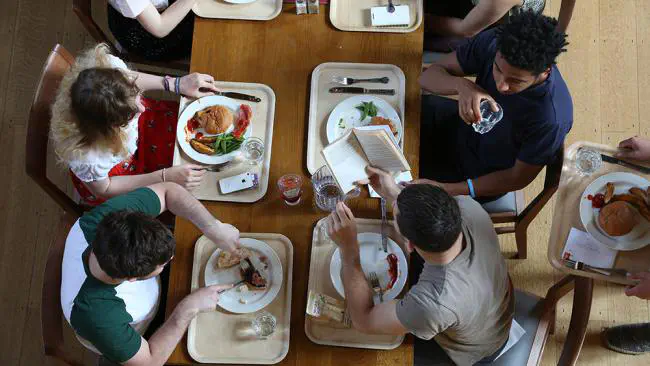Policy Evaluation: Subsidies and Labels
Carbon footprint labelling and sustainble food subsidies: A large scale field experiment with 13 university cafeterias
 Image credit: Jesus College Cambridge
Image credit: Jesus College Cambridge
This field experiment will be conducted in collaboration with 13 college cafeterias to test the effectiveness of sustainable food subsidies, carbon footprint labelling and the combination of both instruments on food choices. The introduction of both interventions will be accompanied by an information campaign to raise awareness about the interventions amongst students. The study will measure the impact of these interventions on the proportion of sustainable food choices among the university students who frequent the participating cafeterias and estimate potential emissions savings.
The food subsidies will be applied to all vegan meals sold in the respective intervention cafeterias, as this food group has the lowest emissions intensity. The carbon footprint labels will provide information on the carbon footprint of each dish and will be displayed next to the dish in the servery. The study will also measure the acceptability of these interventions among the university community, through surveys and interviews with a sample of participants.
The results of this study will provide valuable insights into the effectiveness of food subsidies and carbon footprint labels in promoting sustainable food choices among university students. Additionally, the study will examine the potential of combining food subsidies with carbon footprint labels to create a synergistic effect on sustainable food choices, which could help inform policymakers and university administrators looking to promote more sustainable food systems on campus and in other food choice settings.